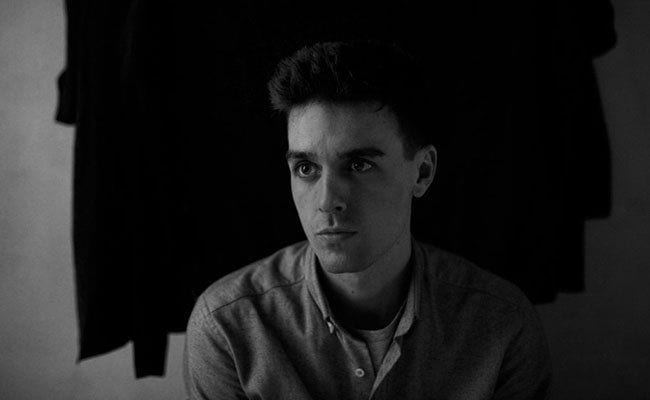
On his solo debut, Severant, Kuedo crafted a wholly original album full of shimmering, cinematic landscapes. He took the filmic work of Vangelis and Mike Oldfield and updated it with more trap, hip-hop beats behind the lucid, gleaming synths. It was a refreshing and sophisticated album that could have fitted perfectly as the soundtrack to any of the great sci-fi works of the 1980s. It shared Vangelis’ ability to create textured, synth soundscapes that could shift from contemplative ambiance to dramatic anxiety over the course of a single song.
Slow Knife, the follow up to Severant, continues to draw influences from Vangelis, but is a piece entirely of it’s own. Kuedo is an artist uninterested in genre, time or place. The music on here resists labeling and is all the better for it. It could lazily be described as ‘futuristic’, but then that would misunderstand the concepts of futurism and futurology. The music still owes a great debt to the past, particularly when it comes to the synths, however he updates those sounds to create something that could only be created here and now. It astounds because it transcends place and time, sounding like it could have come from 30 years ago or 30 years in the future.
It’s clear that Kuedo still wants the album to sound relatable and personal and to do that there is a suggested narrative running throughout. The ebb and flow of the album suggests a relationship that is threatened by collapse. This relationship can be seen as metaphorical or literal and doesn’t necessarily have to be between two people. Read in this way, the album as a whole details the passage of that relationship as we experience its ups and downs. The relationship is given time to slowly unfold as it approaches collapse before we witness the subsequent aftermath.
The opening notes of “Hourglass” ring out like church bells before giving way to minimalist percussion that allows the warm and airy synths to take center stage. The whole thing echoes the passing of time until it abruptly stops like the final grains of sand falling to the bottom (of an hourglass). “In Your Sleep” is the only song to feature vocals with a surprisingly soft, whispered vocal from Hayden Thorpe from Wild Beasts. It has an almost monastic quality with its low, measured rhythm and the repetitive beats that ping around the speakers. It serves as a valuable counterpoint to the gloom of the previous song “Under the Surface”, which ends with a mournful, stretched saxophone coda. The title song, “Slow Knife”, is another example of the totally immersive soundscapes Kuedo creates. The bass and synths orbit each other at a respectful distance. It’s possible to soon forget where you are, akin to falling asleep on the train and waking up well after your stop.
The undercurrent of menace and impending threat is epitomized by the aptly titled “Approaching”. Kuedo skillfully uses the wobbly sound of a flute to evoke the feeling of a situation teetering on the edge of collapse. The oppressive mood of the middle section lifts on the later half of the album. “In Your Skin” and the swirling “Warmer Light” seem lighter and more buoyant. They act as bastions of hope. Whatever the threat was, it has since receded. Nevertheless, the taut almost industrial beats of album closer “Lathe” give the impression that, while the threat might have retreated, it certainly hasn’t gone away entirely. Like the sudden, unexpected blink of a supposedly dead movie villain just before the screen fades to black.

Although this is clearly an electronic album, Kuedo is adept at using organic instrumentation that he manipulates and processes into previously unheard forms. For example “Under the Surface” features a a strangled saxophone passage. Similarly, “Black Hole” elongates the brassy notes of the saxophone to make it less familiar and give it an almost jarring quality. He also adds a cello to heighten the general feeling of anxiety. This is a common theme when it comes to his use of instrumentation. “Breaking the Surface” again features punctuations of heavily processed instruments which gives the impression that there is something, physical or metaphorical, ominously lurking just beneath the surface. It is interesting to hear how the sound of the saxophone decays over the course of the album echoing the corrosion of a relationship.
This is modern soundtrack music. Kuedo has updated the soundtrack work of Vangelis, Mike Oldfield and Jean Michel Jarre to spellbinding effect. The cinematic soundscapes he creates are sophisticated and hugely evocative. The music is broad and spacious with beats and sounds used economically.This is still a very personal and grounded album, firmly rooted in the domestic and unencumbered by the big questions or huge interplanetary concepts. Kuedo adroitly balances feelings of dread and comforting warmth over the course of the album to leave a mesmeric piece of work.

